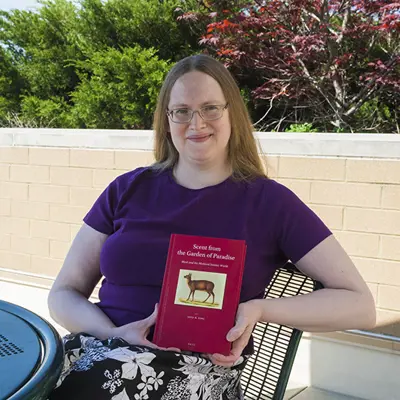
On the bookshelf: King explores the origins and trade of musk
June 9, 2017
Dr. Anya King, associate professor of history, wanted to extend on the research she began in graduate school, which sought to find a luxury trade that could be traced to a specific region. Her book, Scent from the Garden of Paradise. Musk and the Medieval Islamic World, extensively covers the origins and many uses for musk and its value and impact on trade.
Musk deer, whose habitat was exclusive to Central Eurasia, became a lucrative resource for the region for the scent the males produced. Musk became an esteemed aromatic during medieval times, and was especially revered by the Islamic civilization.
While we often think of perfume when we think of musk, King said the earliest uses were medicinal. "It was believed to correct the air, and improve your health," she said. "If you read through historical pharmaceutical formularies you'll find musk listed as an ingredient in many prescriptions."
In Middle Eastern civilization, the scent of musk characterized heaven. It's even mentioned in the Quran, stating that "heaven is filled with musk." "It has a special symbolism within Islam," said King. "To have the smell of musk means you are an excellent person."
Due to the high cost of musk, many began diluting it with other ingredients. Using small quantities of authentic musk, it would be mixed with other ingredients and ground into a paste for perfumes (which during that era was only worn by men), or ground with wood to make incense. Imitations of the scent also began to be produced. King's book is an extensive study on this once luxury commodity, its ceremonial, aromatic, medicinal purposes and how various geographic regions utilized it.
Scent from the Garden of Paradise. Musk and the Medieval Islamic World is available for purchase on Amazon.